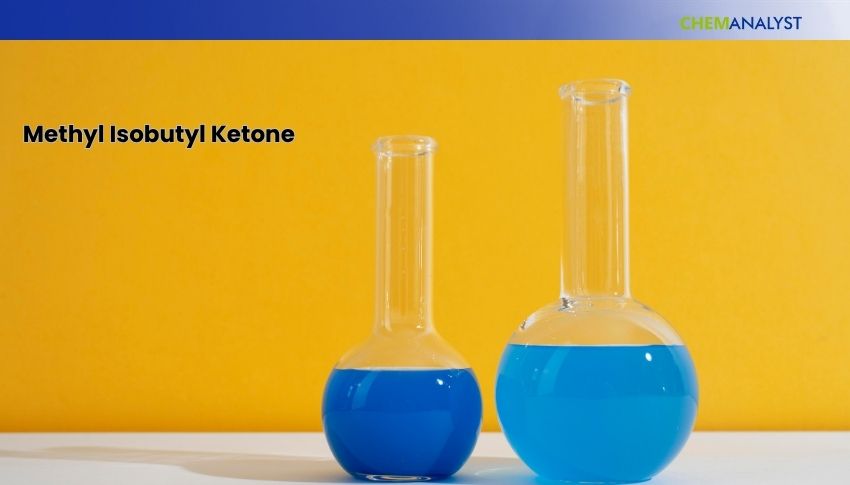Welcome To ChemAnalyst

In the final week of June 2025, Methyl Isobutyl Ketone (MIBK) prices remained consistent in India, Japan, and the U.S., while China experienced a decline, which reflects localized supply-demand forces, currency fluctuations, and macroeconomic elements.
In India, during the last week of June, MIBK pricing was stable despite feedstock acetone pricing of 2.3%. Weak demand downstream from adhesives, paints, coatings, and inks, primarily due to the early monsoon season, caused muted consumption. The depreciation of the Indian rupee against the U.S. dollar has caused additional costs, which have removed any pricing ability to react to lower raw material costs in the import sector. The market remained balanced, and therefore short-term pricing did not have any real movement.
At the same time, in China, MIBK prices dropped by 1% as key demand sectors fell short of expectations. Acetone prices remained largely unchanged, leaving no cost support. Buyers were cautious, avoiding bulk purchases with a weak economic picture and low confidence. The earlier geopolitical tensions had subsided, thus removing any speculative interest, contributing to an overall slight bearish trend for MIBK.
Japan's MIBK market showed price firmness this week due to stable acetone pricing and steady imports from throughout Asia. The MIBK supply was adequate for demand, but overall sentiment was lackluster. The surge in the U.S. dollar against Asian currencies added a further precautionary cost element to bulk buying, and there remained uncertainty over any impending U.S. trade tariffs, which dampened demand. Overall, as demand was tepid and supply stable, MIBK prices remained stable.
Similarly, in the United States, MIBK prices held firm with a significant drop in acetone by 4.3%. Though domestic manufacturers saw cost savings, they chose to maintain their pricing, even with the moderate bounce in local demand, which diminished the availability for export. While interest from overseas remained soft, MIBK manufacturers preferred to protect their domestic customers, preventing oversupply issues, and kept the market fundamentals supported and balanced.
As per ChemAnalyst, in the longer term, it is anticipated that the MIBK market will be under pressure from sluggish demand from downstream users and overall economic uncertainty, particularly in Asia. The continuing strength of the dollar may elevate MIBK import costs in both India and Japan, preventing any significant price decrease (if the cost of feedstock acetone is relatively stable or decreasing). China's outlook seems cautious as well, with buyers likely to implement a "wait-and-see approach" until more credible demand signals emerge.
In the U.S., consumers are likely to provide some level of support; however, this support may be short-lived. A decline in export demand, or a further decrease in the costs of feedstock, could certainly change this picture. All in all, it appears the overall MIBK market will experience a sustained phase of little-to-no volatility, with prices dictated primarily by regional currency values, available inventories, and macroeconomic news from the industrial market.
We use cookies to deliver the best possible experience on our website. To learn more, visit our Privacy Policy. By continuing to use this site or by closing this box, you consent to our use of cookies. More info.
